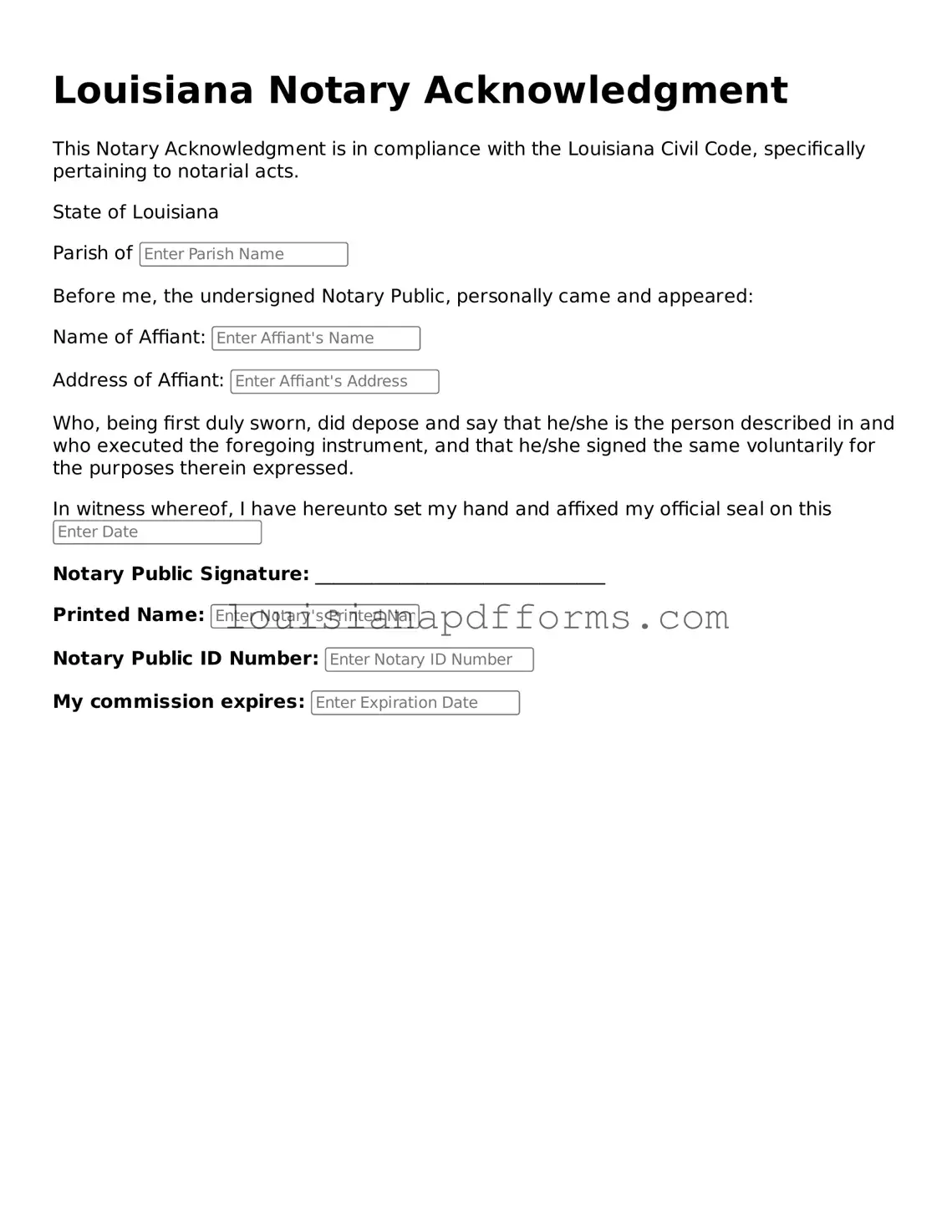Louisiana Notary Acknowledgement Form
The Louisiana Notary Acknowledgement form is a legal document that verifies the identity of individuals signing a document and confirms their willingness to do so. This form is essential for ensuring that signatures are authentic and that the signers understand the contents of the document. Proper use of this form can help prevent disputes and enhance the credibility of the signed agreement.
Access My Document Now

Louisiana Notary Acknowledgement Form
Access My Document Now

Access My Document Now
or
Free Notary Acknowledgement
You’re halfway through — finish the form
Edit, save, and download your completed Notary Acknowledgement online.